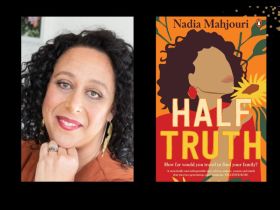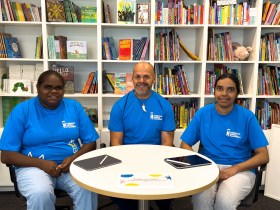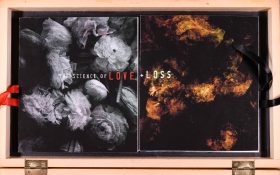It’s official: Australians love to read.
Book sales are on the rise, with Books + Publishing reporting that sales increased by 1.4% in value and 1.3% in volume in 2018.
Similarly, the Australia Council’s 2016 report, Reading the Reader: A Survey of Australian Reading Habits found that ‘nine in ten Australians enjoy reading for interest or pleasure and seven in ten would like to spend more time reading books’.
And it seems we love both fiction and non-fiction equally, with the bestselling titles in Australia from 2018, as revealed by Nielsen BookScan Australia, including The Barefoot Investor (Scott Pape), The Subtle Art of Not Giving a F*Ck (Mark Manson), Nine Perfect Strangers (Liane Moriarty), and The Tattooist of Auschwitz (Heather Morris).
In this flourishing landscape, what can our reading habits and book interests tell us about our society and culture?
Book Sales and what they reveal
Money was the subject most on Australian’s minds in 2018 with Scott Pape’s The Barefoot Investor topping Australian book sales in 2017 and 2018, pointing to a conscious effort at financial self-education.
‘The Barefoot Investor has held on strongly in the past two years and topped the annual charts two years in a row,’ said Bianca Whiteley, Account Director, Book Research team at international sales data analysis service, Nielsen BookScan Australia.
In 2018, The Barefoot Investor was the number one bestseller for 33 weeks. Pape also claimed the ninth spot in the 2018 Nielsen Christmas Bestsellers rankings with The Barefoot Investor for Families.
Recent book sales also reveal readers’ thirst for local voices and narratives.
Whiteley said, ‘This [past] Christmas, Australians have had a preference for home-grown authors, with four local titles on the Nielsen Christmas Bestsellers List.
‘The strength of Australian authors is also evident as we go down the list, with half of the top 20 titles being written by Australians,’ she told ArtsHub.
‘Authors such as Liane Moriarty, Matthew Reilly, Jane Harper, Markus Zusak, Johnathan Thurston, Leigh Sales, Shane Warne and Peter FitzSimons joined Pape at the top of the charts.’
Worth noting is the rising popularity of genres such as crime and mystery: ‘The crime/mystery/thriller genre is the category most widely enjoyed by readers, and also takes the top spot for favourite category.’
Read: Australia’s fascination: the rise of true crime
Over the past two years, Nielsen BookScan has seen nearly a 30% jump in local authors featured in the top 25 Fiction titles.
The evidence of thriving books sales indicates to a strong cohort of readers, although sales data can’t tell us everything. According to the Reading the Reader survey, ‘almost as many people borrow books as buy them, most commonly borrowing from friends or relatives’.
Book sharing with friends and the robust book club culture in Australia can also shed fresh light on the Australian reader and our cultural landscape.
Book club favourites turn into social conversations
Jennifer Stephens, Book Club coordinator at Avid Reader Bookshop, Brisbane, told ArtsHub that 61 books in Avid Reader’s Top 100 Books in 2018 were written by Australians and 54 were written by women.
‘Something that I have very much noticed is that we are reading a lot of Australian women writers,’ Stephens said.
It’s not just fiction written by women that readers are consuming more of; non-fiction written by women is a big favourite among book clubs too.
‘Bri Lee’s non-fiction work Eggshell Skull came in number 4 on our Top 100 and has certainly been on my 2018 list of recommended reads for book clubs. Also, our Her Voice book club, has been reading a number of non-fiction titles,’ Stephens said.
‘Alongside a diverse fiction list, Her Voice has read Zadie Smith’s essays, Feel Free, Rose McGowan’s Brave and recently, Clementine Ford’s book Boys Will Be Boys, which was voted their Book of the Year for 2018.’
Avid Reader’s book clubs read more fiction than non-fiction but are prefaced on diversity.
Sexuality and gender are also a topic of great interest to readers. ‘In 2018 one of our book clubs – In Between the Sheets – read Testosterone Rex by Cordelia Fine, Trans Like Me by CN Lester and Boy Erased by Garrard Conley.’
A popular memoir, Boy Erased is Conley’s biographical account of his harrowing journey through conversion therapy.
First Nation writers have also been consistently topping best sellers lists, Stephens said, ‘Dark Emu by Bruce Pascoe is just consistently in our bestseller list, and a couple of our book clubs are about to read Dark Emu … We have a book club just for Australian writers and their Book of the Year for 2018 was Claire G Coleman’s Terra Nullius.’
Interest in such title points to a collective desire to understand the land we live on, and the vital need for more First Nations voices and perspective to take centre stage.
‘I think we are trying to understand where we are and how we got where we are. To try and get a better grip of our understanding of our First Peoples,’ Stephens said.
Another phenomenal success among book clubs is Trent Dalton’s Boy Swallows Universe. ‘I think Dalton’s book resonates so much with contemporary readers as a coming of age story, and because Dalton is a master connection between his characters.
‘His protagonist Eli Bell struggles through terribly tough experiences but he has precious relationships in his search for what it is to be a good man. The book has a huge sense of purpose and joy,’ Stephens said.
Noticeably, book clubs and bookshops have become the modern day agorae – a place to discuss, debate, communicate and share.
‘Book clubs are about bringing people together and that is a really strong part of what we do here. It’s about community and people and hearing other perspectives,’ said Stephens.
We are what we read
Speaking to the growth of the publishing market in 2018, Nielsen BookScan’s Bianca Whiteley said the book trade’s biggest driver has been non-fiction.
‘Within the non-fiction sector, personal development has grown to become the largest genre, overtaking both food and drink and biographies and autobiographies,’ she said.
‘In another trend, Aussies are embracing homegrown fiction. We saw Liane Moriarty consistently in the bestseller lists over the past few years, but in 2018 and now in early 2019 we have various Australian authors selling as well as or better than their overseas counterparts.’
Australian readers’ priorities and interests are evident: self-help and finance, a taste for home-grown writers, an eye for feminist writing, curiosity about sexuality and gender, a fascination with crime and mystery, and a deep need for First Nations perspectives.
Such topics give us an indication of the nature of society at large; an array of divergent interests that touch on universal social and personal themes.
‘I think everyone at the moment is looking for that sense of purpose – where we belong, and the ideas of belonging,’ Stephens said. ‘It’s those things that have been human yearnings for so many millennia and it’s still as strong as ever.’





